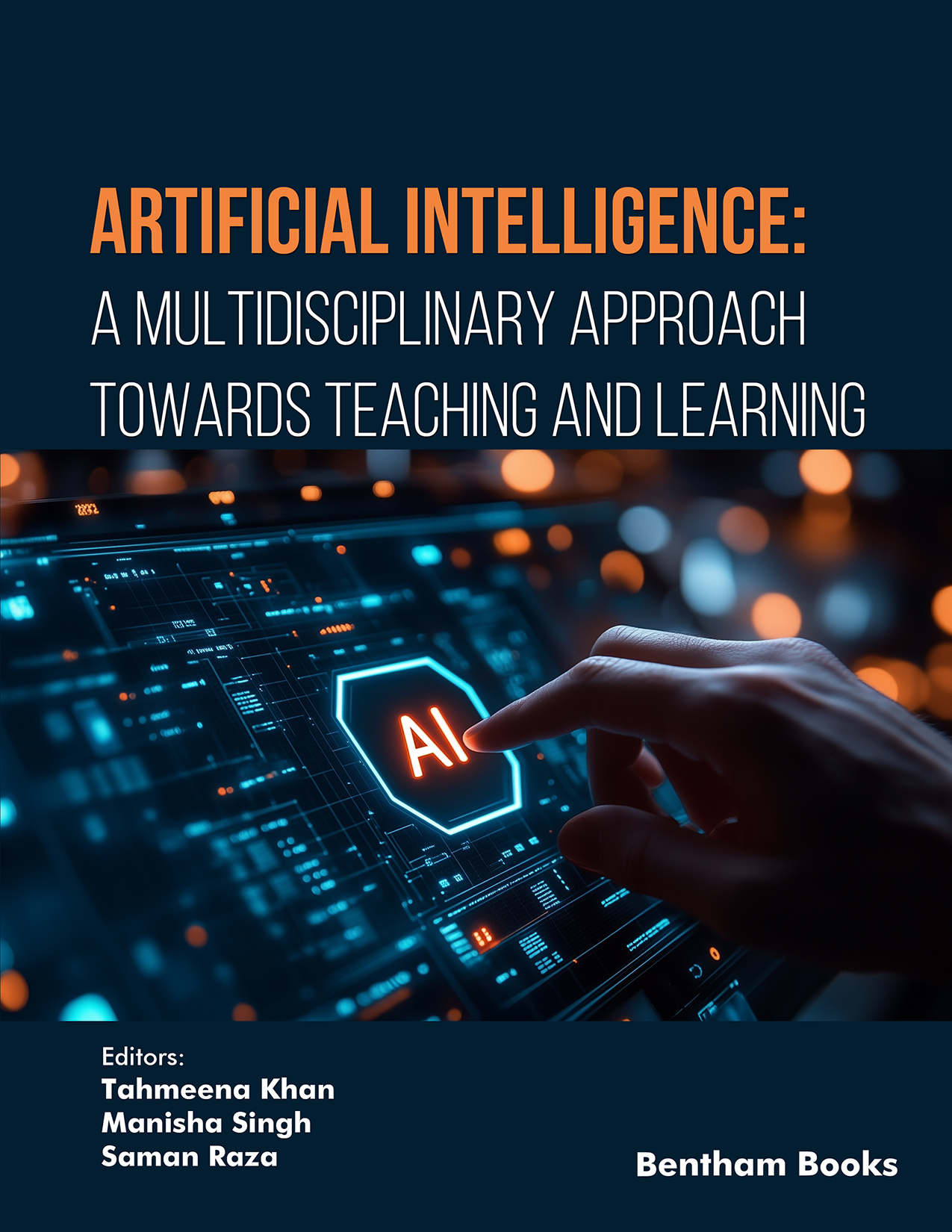Preface
As we stand on the brink of the Fourth Industrial Revolution, AI has revolutionized and acted as a transformative force in redefining and reshaping industries, economies, and perhaps most significantly, education. The landscape of education is positioned for a paradigm shift with the infusion of AI. This book delves into the absorbing connection of AI and the teaching-learning process, exploring this constantly evolving association that has the potential to impact educators and learners in a way that is productive for them. The book is a compilation of 11 chapters from the contribution of different experts in their areas and therefore covers a rich account of insights, new frontiers, and collaboration across disciplines. Each chapter is constructed to be self-contained, permitting readers to dive in and out as per their own understanding.
The book begins with an introduction to AI, its roots in philosophy, its application in different disciplines, and most importantly an analysis of AI from the perspective of philosophy. The subsequent chapters will cover a spectrum of topics, which are constructed in a way that each chapter draws upon insights from various fields including biological science, physical sciences, mathematics, languages, environmental science, bio-informatics, chemical science, education, and research. The book examines the theoretical underpinnings of AI-assisted teaching-learning in different disciplines, explores the latest technological advancements, and offers practical strategies for integrating AI into the classroom. The chapters delve deeper, delivering a comprehensive in-depth analysis of the multi-faceted connection between AI and the teaching-learning process of different disciplines.
Our aim is to provide a rich tapestry of insights to educators, researchers, policymakers, and students, while encouraging cross-disciplinary dialogue and collaboration. We hope to empower stakeholders to harness the potential of technology while addressing the challenges it presents by fostering a deeper understanding of AI's impact on teaching and learning. This book would be useful for students, teachers, researchers, and academicians who look forward to the amalgamation of AI and education.
As the editors of this multidisciplinary book, we would like to thank the contributing authors for their time and expertise. We also want to thank the readers whose curiosity and commitment to advancing education through technology drive our ongoing investigation of this fascinating intersection.
Tahmeena Khan
Department of Chemistry
Integral University
Lucknow, U.P., India
Manisha Singh
Department of Education
Integral University
Lucknow, U.P., India
&
Saman Raza
Department of Chemistry
Isabella Thoburn College
Lucknow, U.P., India

